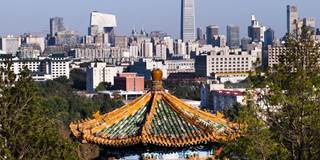China observers can’t seem to agree on the underlying logic of the country's development model. But, with faith in the West's long-dominant Washington Consensus breaking down, both sides may be in a similar position – a reality that could facilitate cooperation to deliver global public goods.
HONG KONG – Four decades would seem to be plenty of time to identify the underlying logic of China’s development model. Yet, 40 years after Deng Xiaoping initiated the country’s “reform and opening up,” a “Beijing Consensus” – that is, a Chinese rival to the Western neoliberal Washington Consensus – has yet to be articulated.
Over the years, China has worked to transform its closed, planned economy into a more open, market-based system. Industry and, increasingly, services have replaced agriculture as the main drivers of growth, and the country has gone from technological copycat to global innovator. Meanwhile, China has tackled several difficult challenges, from excessive debt and overcapacity to severe pollution and official corruption.
This has been a highly complex process. According to China Academy of Social Sciences economist Cai Fang, it can be understood only in the context of the country’s unique history, demography, and geography, not to mention broader technological and global trends. All of these factors have, after all, helped to shape China’s governance and institutions.

HONG KONG – Four decades would seem to be plenty of time to identify the underlying logic of China’s development model. Yet, 40 years after Deng Xiaoping initiated the country’s “reform and opening up,” a “Beijing Consensus” – that is, a Chinese rival to the Western neoliberal Washington Consensus – has yet to be articulated.
Over the years, China has worked to transform its closed, planned economy into a more open, market-based system. Industry and, increasingly, services have replaced agriculture as the main drivers of growth, and the country has gone from technological copycat to global innovator. Meanwhile, China has tackled several difficult challenges, from excessive debt and overcapacity to severe pollution and official corruption.
This has been a highly complex process. According to China Academy of Social Sciences economist Cai Fang, it can be understood only in the context of the country’s unique history, demography, and geography, not to mention broader technological and global trends. All of these factors have, after all, helped to shape China’s governance and institutions.